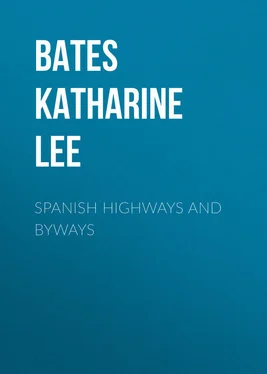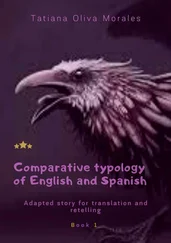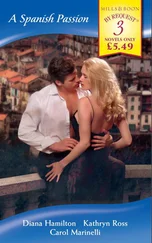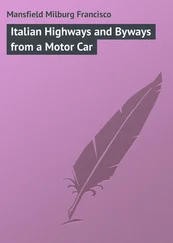Katharine Bates - Spanish Highways and Byways
Здесь есть возможность читать онлайн «Katharine Bates - Spanish Highways and Byways» — ознакомительный отрывок электронной книги совершенно бесплатно, а после прочтения отрывка купить полную версию. В некоторых случаях можно слушать аудио, скачать через торрент в формате fb2 и присутствует краткое содержание. ISBN: , Жанр: foreign_antique, foreign_prose, Путешествия и география, на английском языке. Описание произведения, (предисловие) а так же отзывы посетителей доступны на портале библиотеки ЛибКат.
- Название:Spanish Highways and Byways
- Автор:
- Жанр:
- Год:неизвестен
- ISBN:http://www.gutenberg.org/ebooks/38767
- Рейтинг книги:5 / 5. Голосов: 1
-
Избранное:Добавить в избранное
- Отзывы:
-
Ваша оценка:
- 100
- 1
- 2
- 3
- 4
- 5
Spanish Highways and Byways: краткое содержание, описание и аннотация
Предлагаем к чтению аннотацию, описание, краткое содержание или предисловие (зависит от того, что написал сам автор книги «Spanish Highways and Byways»). Если вы не нашли необходимую информацию о книге — напишите в комментариях, мы постараемся отыскать её.
Spanish Highways and Byways — читать онлайн ознакомительный отрывок
Ниже представлен текст книги, разбитый по страницам. Система сохранения места последней прочитанной страницы, позволяет с удобством читать онлайн бесплатно книгу «Spanish Highways and Byways», без необходимости каждый раз заново искать на чём Вы остановились. Поставьте закладку, и сможете в любой момент перейти на страницу, на которой закончили чтение.
Интервал:
Закладка:
Yet we looked from the madcap crowd to the closed shutters, keeping their secrets of heartbreak, and remembered the words of Zorrilla, "Where there is one who laughs, there is ever another who weeps in the great Carnival of our life."
The parks of San Sebastian were gay with maskers and music, tickling brushes and showers of confetti , on our last day there, but the peculiar feature of the festivity in this Basque city is "the baiting of the ox." On that Carnival-Sunday afternoon we found ourselves looking down, from a safe balcony, upon the old Plaza de la Constitución , with its arcaded sides. The genuine bull-fights, which used to take place here, have now a handsome amphitheatre of their own, where, when the summer has brought the court to San Sebastian, the choicest Andalusian bulls crimson the sand of the arena. But the Plaza de la Constitución , mindful of its pristine glory, still furnishes what cheap suggestions it can of the terrible play. The square below was crowded with men and boys, and even some hoydenish girls, many in fantastic masks and gaudy dominos, while the tiers of balconies were thronged with eager spectators. A strange and savage peal of music announced that "the bull" was coming. That music was enough to make the hereditary barbarian beat in any heart, but "the bull"! At the further corner of the plaza , pulled by a long rope and driven by a yelling rabble, came in, at a clumsy gallop, an astonished and scandalized old ox. Never did living creature bear a meeker and less resentful temper.
At first, beaten and pricked by his tormentors, he tore blindly round and round the plaza , the long rope by which he was held dragging behind him, and sometimes, as he wheeled about, tripping up and overturning a bunch of the merrymakers. This was a joy to the balconies, but did not often happen, as the people below showed a marvellous dexterity in skipping over the rope just in time to escape its swinging blow. Sometimes the poor, stupid beast entangled his own legs, and that, too, was a source of noisy glee. But, on the whole, he was a disappointing and inglorious ox. He caused no serious accident. Nothing could ruffle his disposition. The scarlet cloaks waved in his eyes he regarded with courteous interest; he wore only a look of grieved surprise when he was slapped across the face with red and yellow banners; tweaks of the tail he endured like a Socrates, but now and then a cruel prod from a sharp stick would make him lower his horns and rush, for an instant, upon the nearest offender. The balconies would shout with the hope of something vicious and violent at last, but the mobile crowd beneath would close in between the ox and his assailant, a hundred fresh insults would divert his attention, and indeed, his own impulses of wrath were of the shortest. To the end he was hardly an angry ox – only a puzzled, baffled, weary old creature who could not make out, for the life of him, into what sort of red and yellow pasture and among what kind of buzzing hornets his unlucky hoofs had strayed.
Finally he gave the enigma up and stood wrapped in a brown study among his emboldened enemies, who clung to his horns and tail, tossed children upon his back, tickled his nostrils with their hat brims, and showered him with indignities. The balconies joined in hooting him out of the plaza , but he was so pleased to go that I doubt if human scorn of his beastly gentleness really interfered with his appetite for supper. He trotted away to that rude clang of music, the babies who were dancing to it on their nurses' arms not more harmless than he. And although that worrying half hour may have told upon his nerves, and his legs may have ached for the unaccustomed exercise, no blood was to be seen upon him. It was all a rough-and-tumble romp, nothing worse, but the balconies would have liked it better had it been flavored with a broken leg or two. A few sprawlings over the rope really amounted to so little. But the toro de fuego was to come there Tuesday evening, and when this blazing pasteboard bull, with fireworks spluttering all over him from horns to tail, is dragged about among the throng, there is always a fine chance of explosions, burnings, and even of blindings for life.
But Carnival Tuesday found us no longer in sunny San Sebastian. We were shivering over a brasero in storied Burgos, a city chill as if with the very breath of the past. And the Spanish brasero , a great brass pan holding a pudding of ashes, plummed with sparks, under a wire screen, is the coldest comfort, the most hypocritical heater, that has yet come my way.
Our Monday had been spent in a marvellous journey through the Pyrenees, whose rugged sublimities were bathed in the very blue of Velázquez, a cold, clear, glorious blue expanding all the soul. These are haunted mountains, with wild legends of lonely castles, where fierce old chieftains, beaten back by the Franks, shut themselves in with their treasure and died like wounded lions in their lairs. We passed fallen towers from whose summits mediæval heralds had trumpeted the signal for war, ruined convents whence the sound of woman's chanting was wont to startle the wolves of the forest, mysterious lakes deep in whose waters are said to shine golden crowns set with nine precious pearls – those ducal coronets that Rome bestowed upon her vassals – craggy paths once trod by pilgrims, hermits, jugglers, minstrels, and knights-errant, and shadowy pine groves where, when the wind is high, the shepherds still hear the weeping ghost of the cruel princess, whose beauty and disdain slew dozens of men a day until her love was won and scorned, so that she died of longing.
We had reached Burgos at dusk and, without pausing for rest or food, had sallied out for our first awe-stricken gaze up at the far-famed cathedral towers, then had ignominiously lost our way over and over in the narrow, crooked streets and been finally marched back to our hotel by a compassionate, though contemptuous, policeman. My artist comrade was fairly ill by morning with a heavy cold, but she would not hear of missing the cathedral and sneezed three or four enraptured hours away in its chill magnificence. As we came to know Spanish and Spaniards better, they would exclaim " Jesús, Maria y José! " when we sneezed, that the evil spirit given to tickling noses might take flight; but the Burgos sacristan was too keen to waste these amenities on stammering heretics. What we thought of the cathedral is little to the purpose of this chapter. In a word, however, we thought nothing at all; we only felt. It was our first introduction to one of the monster churches of Spain, and its very greatness, the terrible weight of all that antiquity, sanctity, and beauty, crushed our understanding. Like sleepwalkers we followed our guide down the frozen length of nave and aisles and cloisters; we went the round of the fifteen chapels, splendid presence-chambers where the dead keep sculptured state; we looked, as we were bidden, on the worm-eaten treasure-chest of the Cid, on the clock whose life-sized tenant, Papa-Moscas, used to scream the hours to the embarrassment of long-winded pulpiteers, on the cathedral's crown of fretted spires whose marvellous tracery was chiselled by the angels, and on the "Most Holy Christ of Burgos," the crucified image that bleeds every Friday.
Fulfilled with amazement, we searched our way back to the hotel through the sleety rain, ate a shivering luncheon at the " mesa redonda ," that "round table" which is never round, and agreed to postpone our anticipated visits to the haunts of the Cid until a less inclement season. For of course we should come back to Burgos. The proud old city seemed to fill all the horizon of thought. How had we lived so long without it? That the stormy afternoon was not favorable to exploration mattered little. We peeped down from our balconies into the ancient streets, half expecting the exiled Cid to come spurring up, seeking the welcome which we, like all the craven folk of Burgos, must refuse him.
Читать дальшеИнтервал:
Закладка:
Похожие книги на «Spanish Highways and Byways»
Представляем Вашему вниманию похожие книги на «Spanish Highways and Byways» списком для выбора. Мы отобрали схожую по названию и смыслу литературу в надежде предоставить читателям больше вариантов отыскать новые, интересные, ещё непрочитанные произведения.
Обсуждение, отзывы о книге «Spanish Highways and Byways» и просто собственные мнения читателей. Оставьте ваши комментарии, напишите, что Вы думаете о произведении, его смысле или главных героях. Укажите что конкретно понравилось, а что нет, и почему Вы так считаете.












